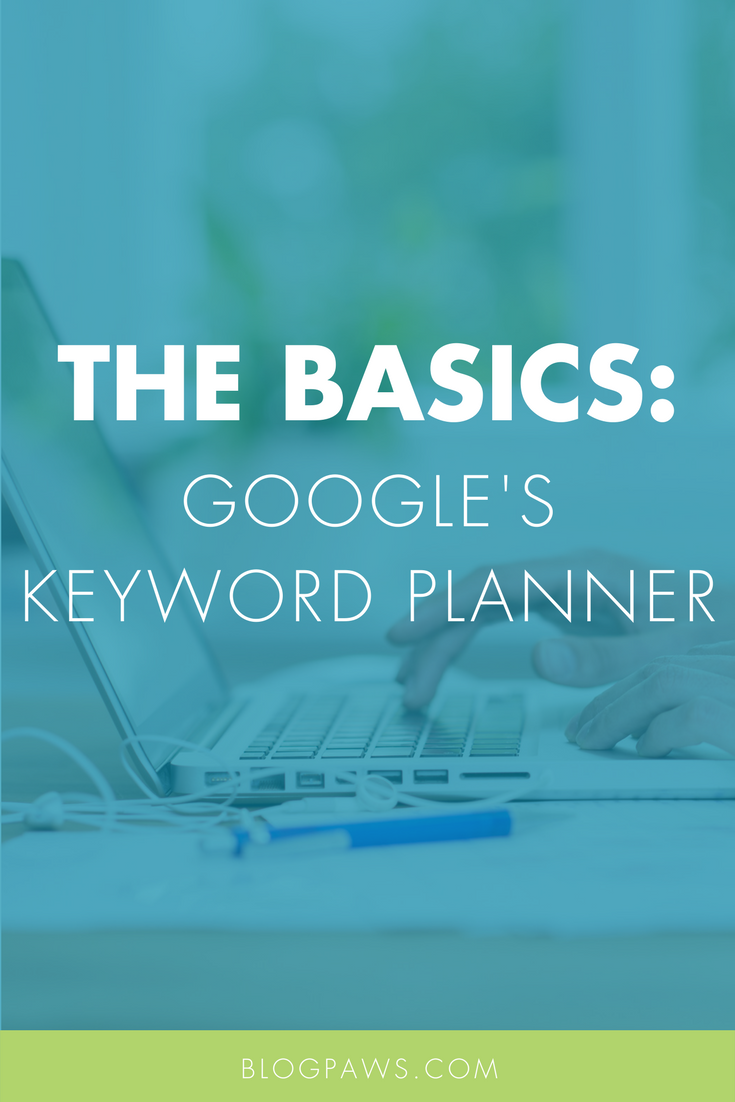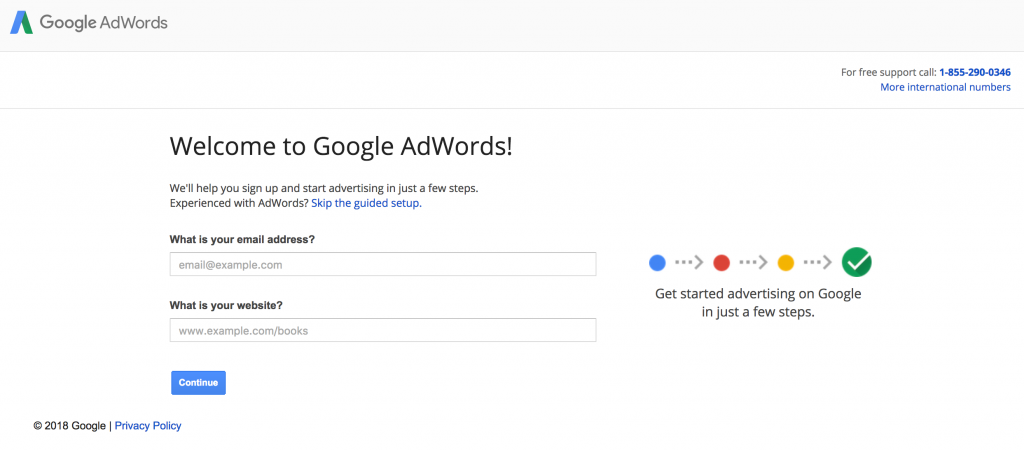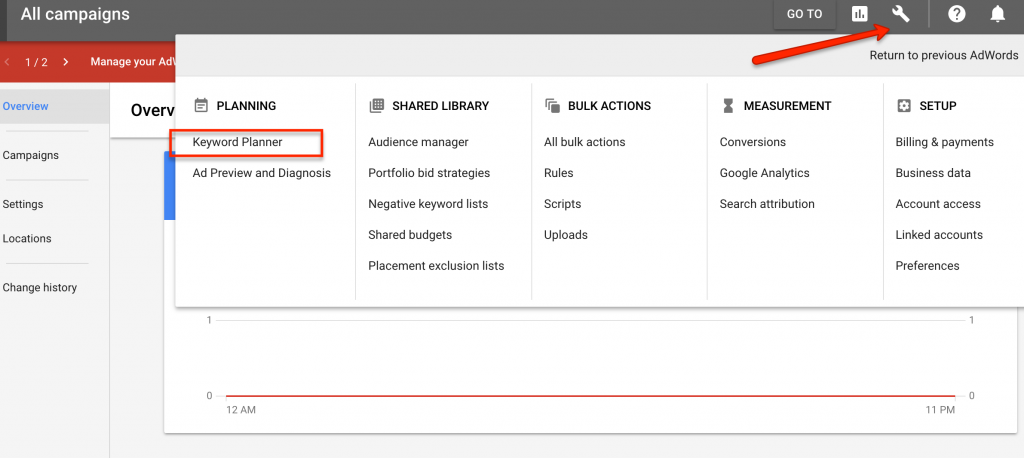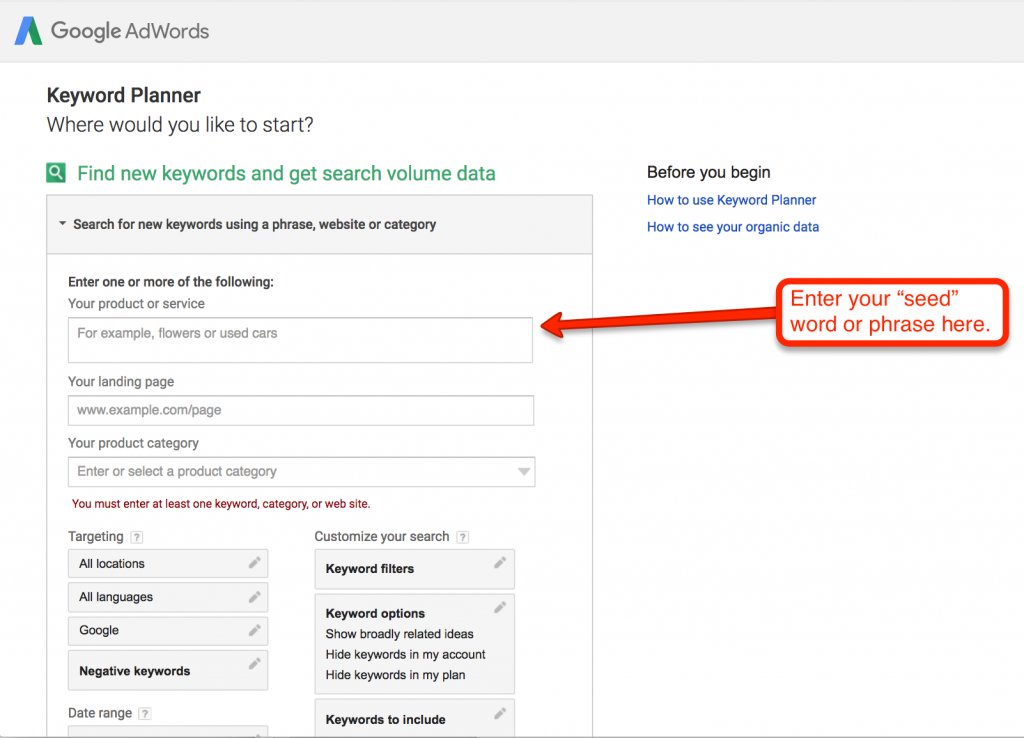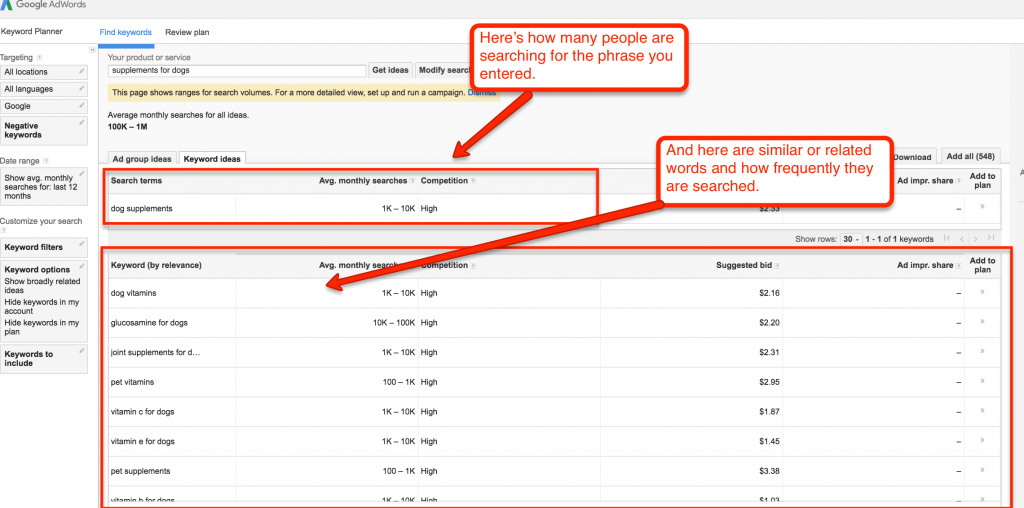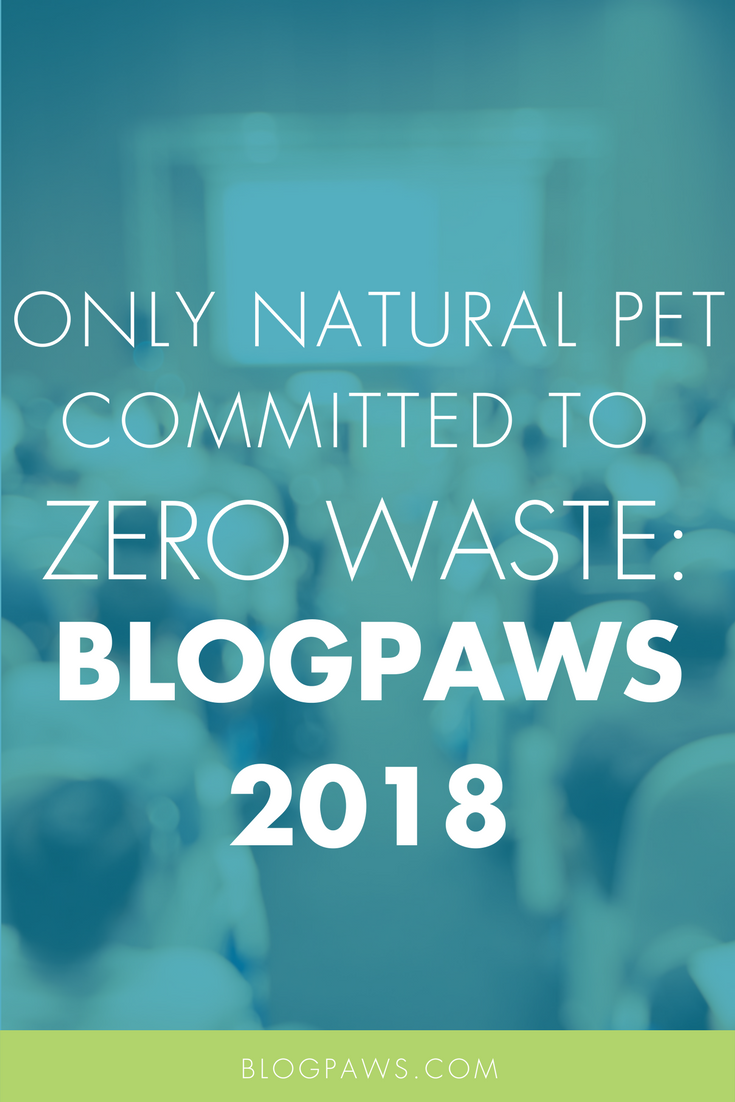An Introduction to the Google Keyword Planner Part 1: The Basics
Content is King.
As a blogger, you’ve likely heard this expression a few thousand times. And that’s because it’s true. In other words, if you want your blog to be successful with users and search engines alike, you need to make sure you’re offering the best content on the web for your respective niche.
But what makes great content? That’s a loaded question; however, there is one thing that can make or break your content when it comes to ranking better in the search engine results: keywords.
In a nutshell, keywords are the important words and phrases that should be included in your content to help it rank better in the search results. For instance, if you’re writing a review of the top omega-3 supplements for dogs, your keyword would be something like “omega-3 supplements,” “omega-3 pills for dogs,” “supplements for dogs” and likely many more.
Ideally, keywords are the words or phrases that users will search for when looking for content like yours. With that in mind, you’ll want to make sure your content includes those words to best rank for those searches.
The above is a gross oversimplification of keywords and their importance; however, it does get the point across: If you want your content to resonate with the right audience, you need to use the right keywords.
But how do you find the right keywords? How do you know the ones you’re targeting are the ones that will resonate most with your users?
There are a lot of tools for figuring this out, but—as is often the case—Google offers a powerful one for free: The Keyword Planner.
What is the Keyword Planner?
Google’s Keyword Planner is technically an offering meant to help AdWords customers (IOW, people paying for ads on Google) by offering them a peek at Google’s vast search query data to help make more informed decisions on how to advertise.
That said, the tool can also be used to get an idea for how many people are searching for particular keywords and concepts. When used correctly, this can give you a very good idea of what your target audience is searching for and how you can modify your content to potentially rank better with the users who are looking for it!
How Do You Get Started with the Keyword Planner?
The very first thing you need to do is set up an AdWords account. But don’t worry—just because you’ll have an AdWords account doesn’t mean you have to actually spend any money with it. That said, let’s get started.
First go to the AdWords website and sign up for an account. All you need to do is follow the prompts and fill in the blanks (it’s not too different from when we created a Google account for Google Analytics.
Just to reiterate: You do not need to set up billing or anything similar with AdWords to use the Keyword Planner.
Using the Google Keyword Planner
Once you have an account set up it’s time to get started. You can find the Keyword Planner by clicking on the wrench icon in the upper right-hand corner. When the submenu opens up, select the “Keyword Planner” option on the far left.
Now, the main page on the Keyword Planner has several options—which may be a bit overwhelming if this is your first time using the tool. We’re going to go over how to use each of these options in future posts, but for now, let’s focus on the quick and dirty way to get some keywords.
Start by selecting the very first option on the page: “Search for new keywords using a phrase, website, or category.” Even in this first option, you have several different ways to seek out your target keywords. For the sake of getting our feet wet in a hurry, right now we’ll only be concerned with using a phrase.
So, for now, ignore all the other options and fields and stick with the very first one (as marked in the above image).
To kick things off, we’ll need what some like to call a “seed.” Basically, this is a word or phrase relating to the keyword you’re interested in. Borrowing from the earlier example, let’s say I’m interested in writing an article about nutritional supplements for dogs.
You know you want to cover that topic, but you’re not sure how users are searching for this kind of content in the search engines. Naturally, you’ll want to make sure you’re using the same keywords they are. In this case, we’ll enter “dog supplements” and see what we get back.
In the first section, we see the word we just entered as well as the Avg. Monthly Searches—the average of how many Google users search for that phrase each month. In this case, the tool is saying that between 100,000 and 1 million* people search for this term each month.
More importantly, take a look at the section below that. These are all the searches Google considers to be relevant or similar to the phrase you searched. Here is where we see the real value of the Keyword Planner. For instance, we can see here that our chosen term of “dog supplements” is searched for much more often than the similar “pet supplements.” This would suggest that focusing our content on just dog supplements and using that keyword will likely show up in more search results than if we focused on the broader “pet supplements.”
Along with that, we now have a list of similar phrases that we can use for future content. For example, this data shows us that “glucosamine for dogs” is searched for relatively often compared to similar terms, so maybe we want to include something about that in our content or create a new piece focused on just that.
*A very important thing to note about the Avg. Monthly Searches number is that they are very, very, very far from accurate. These numbers should be used in a strictly directional capacity, so you can compare the search volume of one term in relation to others.
That’s all there is to it?
Well…no. The above process is one of the easiest ways to gauge which keywords you should be using, but it’s only scratching the surface of the Keyword Planner (and keyword research in general). In the next part of this series, we’ll be digging into how you can use the Keyword Planner to fine turn your search and how to find ideas for future content. Until then, experiment and have some fun!
Michael Ferrari owns and operates Pen Cap Online Marketing, an agency specializing in search engine optimization. When he’s not helping businesses dominate the search rankings, he’s most likely hanging out with his wife, son, and beagle. You can reach him at “michael(at)pencapseo(dot)com”.
Image: ESB Professional/Shutterstock.com

